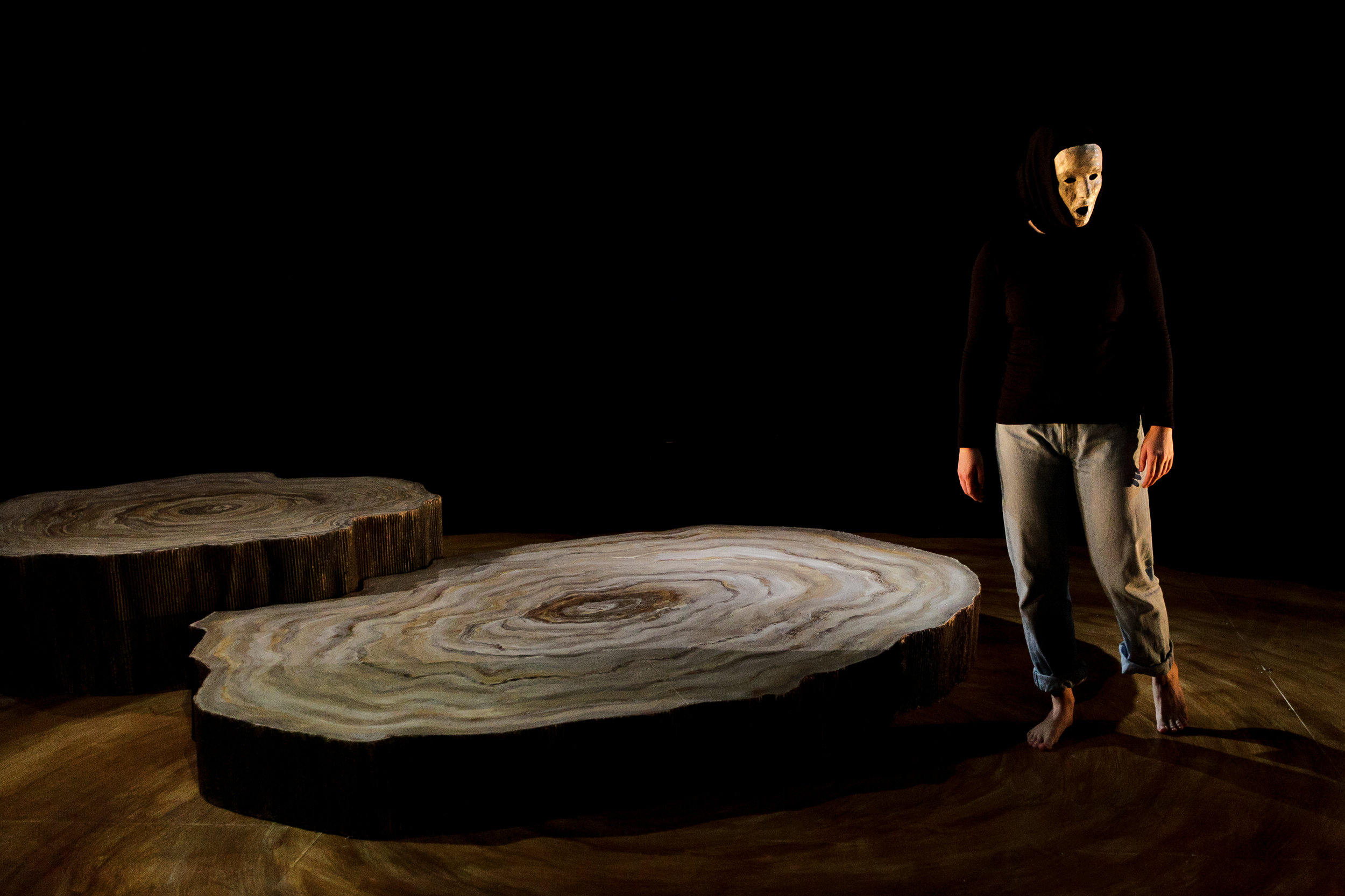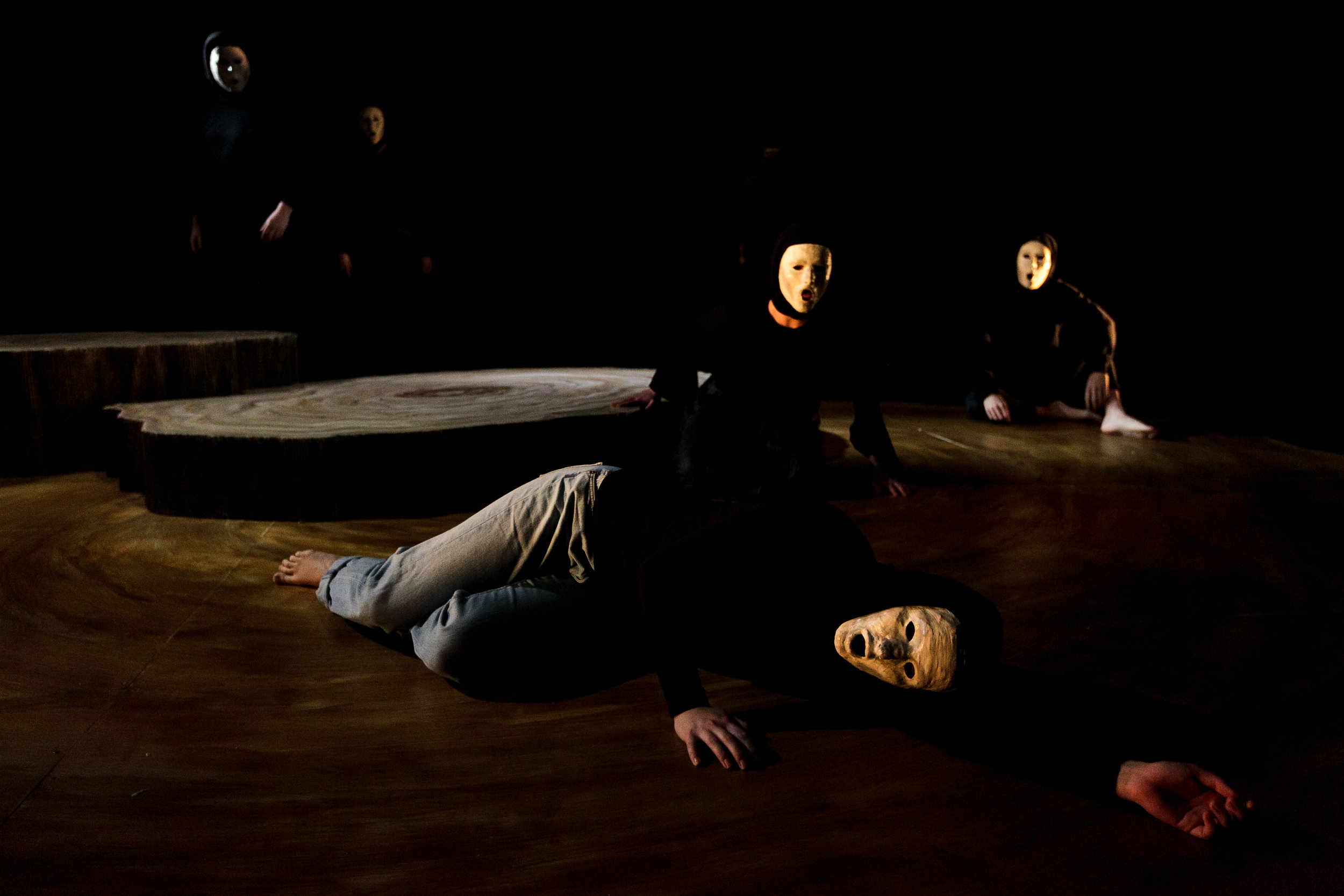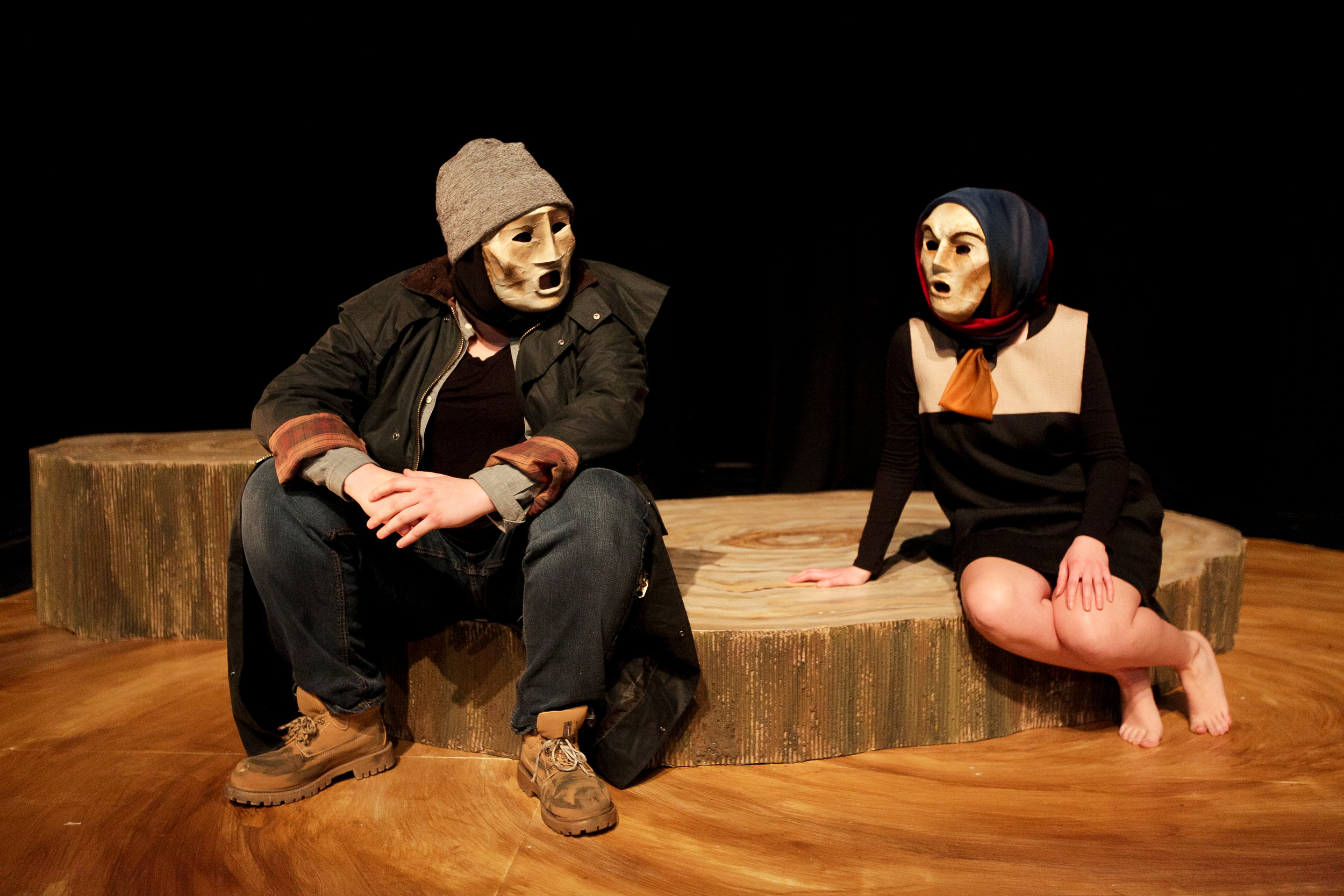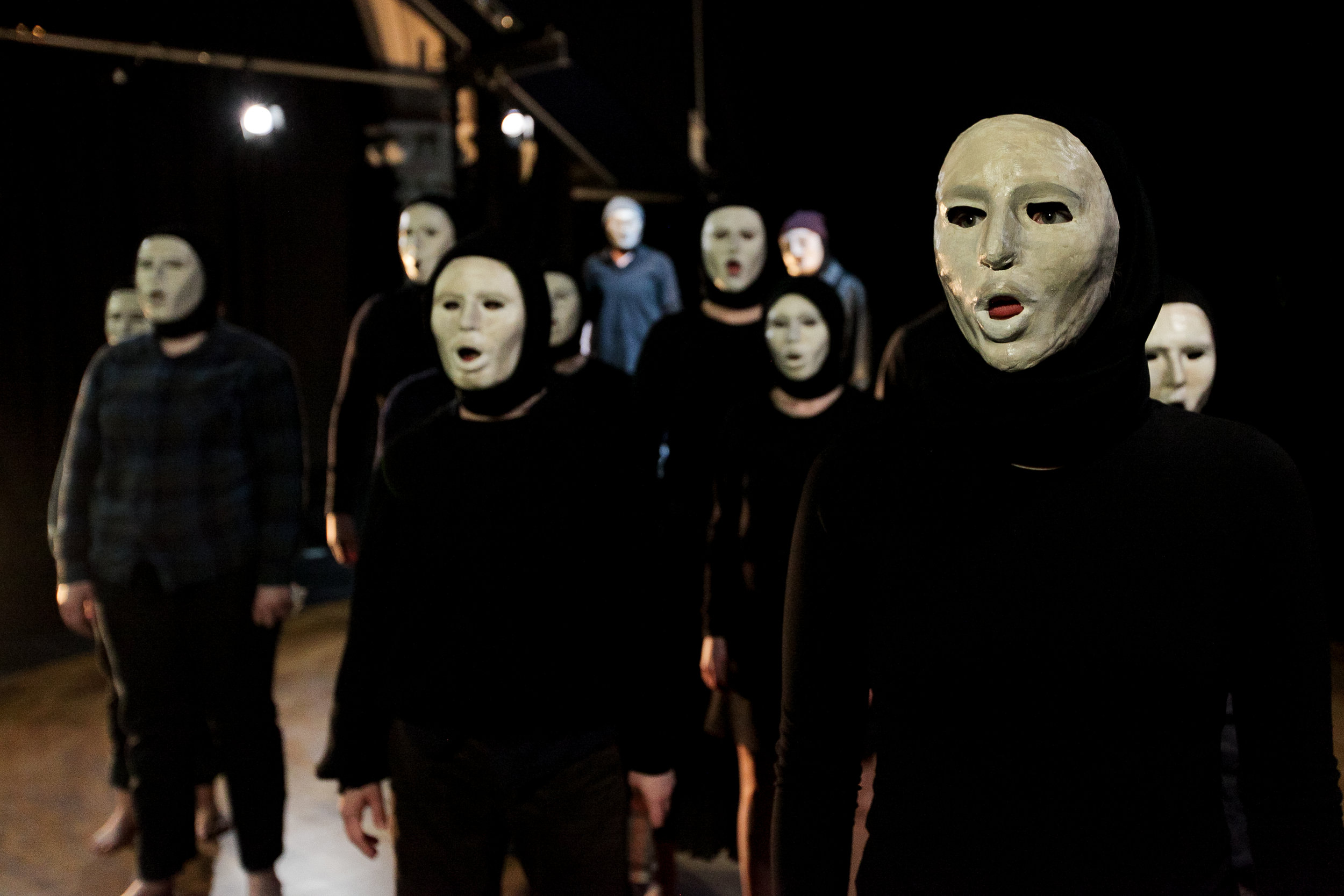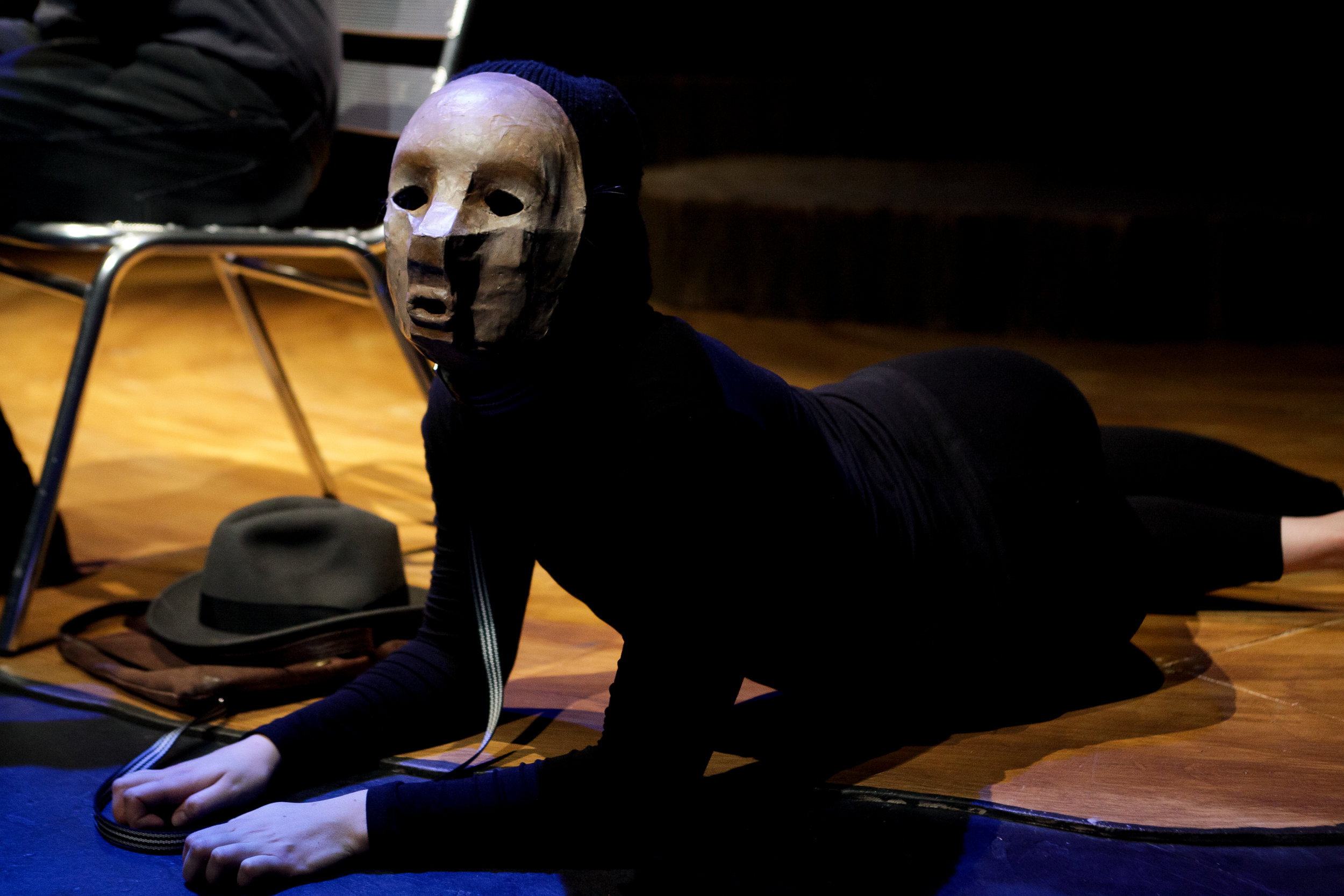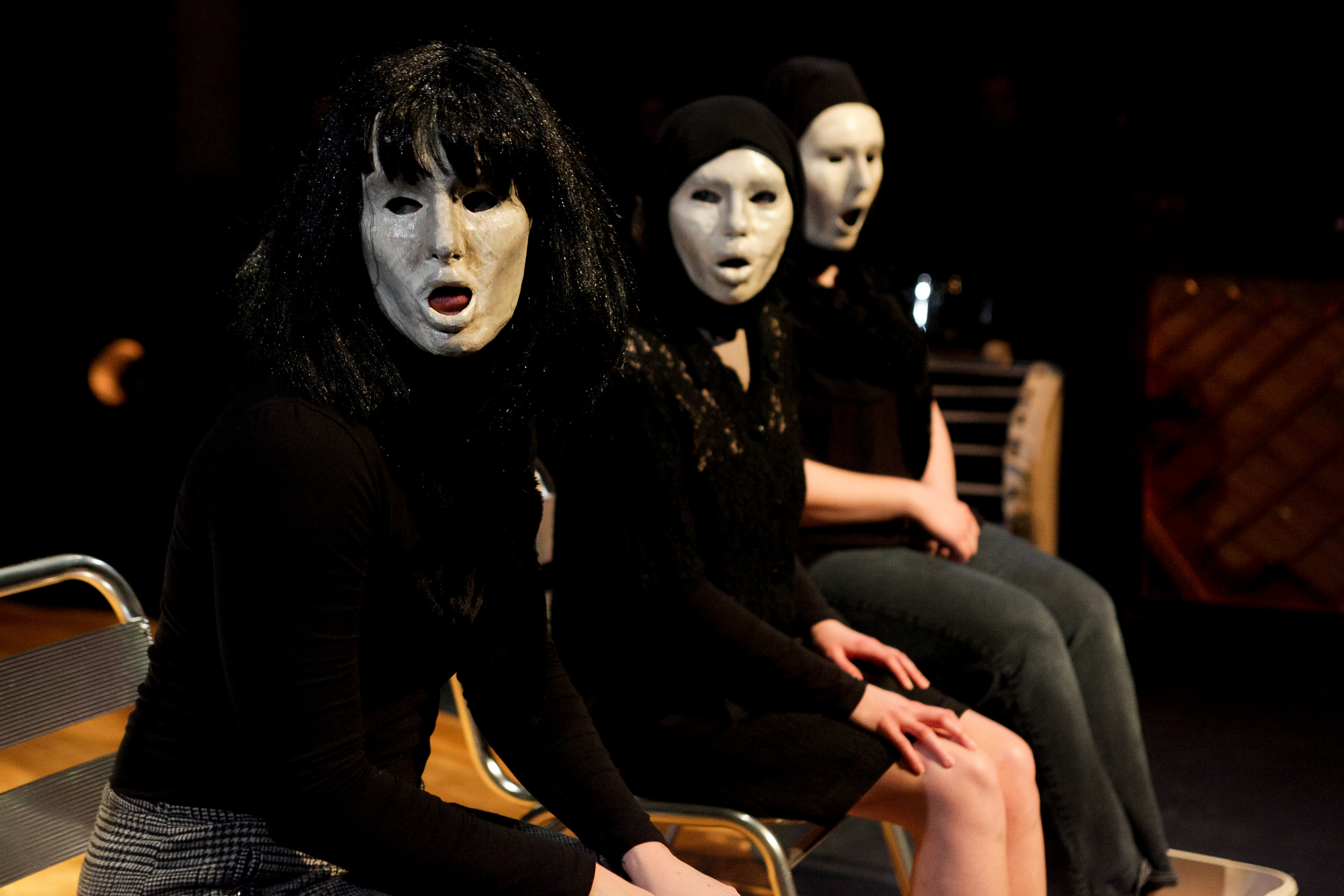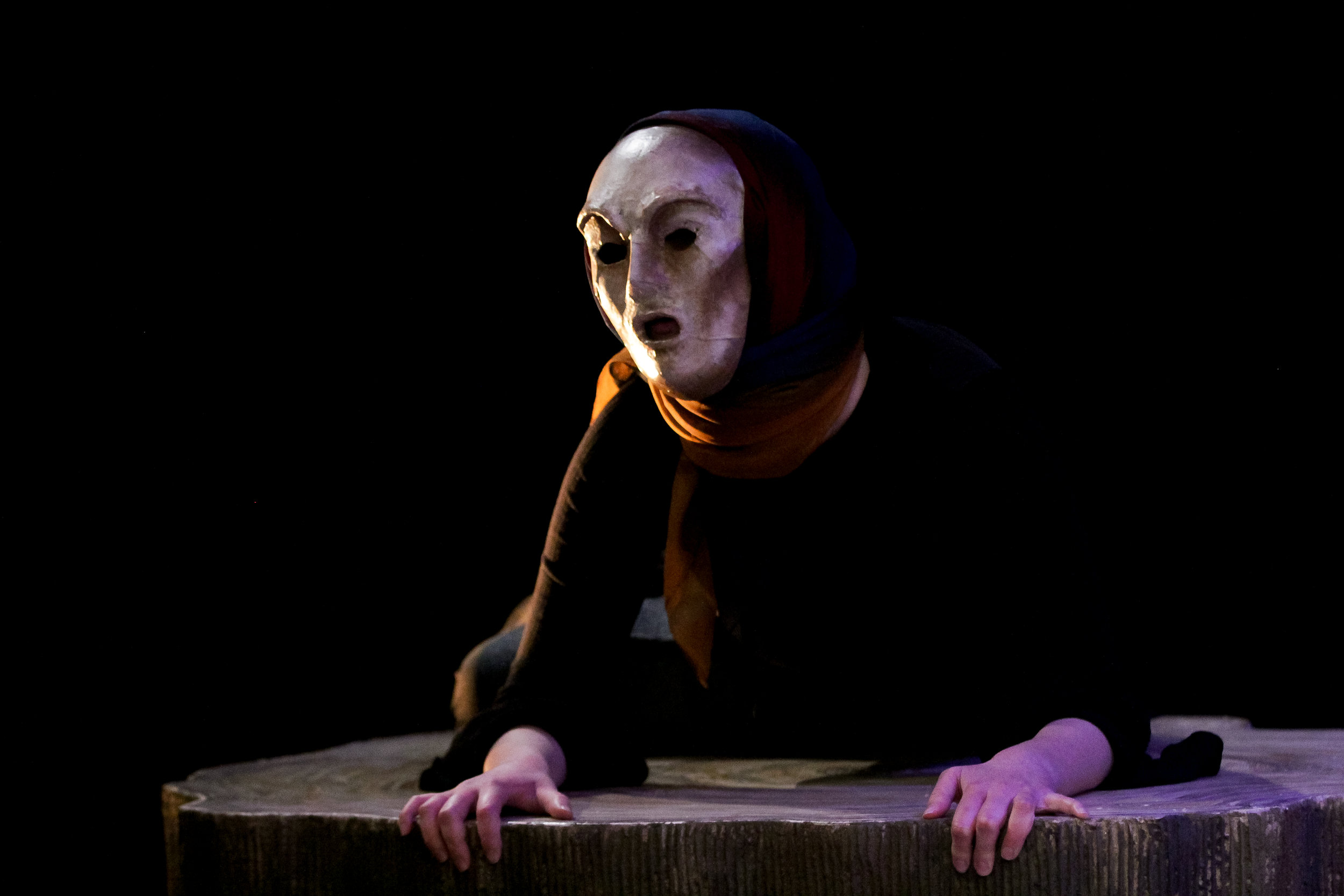Oedipus The Visionary
by David Greig
with 3rd year students from The World Performance Course at East 15
Reflection 2
When I come to the floor, as an actor, this comes with certain expectations. To me this is approaching the floor ready to work openly, sensitively and with full commitment. I first got a feel for this through use of games and exercises which helped me find complicite with the other actors. When trying to work sensitively and openly I listen to the feeling and atmosphere of the scene, which is created by myself, the actors I am collaborating with. I try to feel and hear what is happening around me, to allow me to be in the moment and present.
When then trying to use these skills, which I still had not fully understood in the first few weeks, in a scene it became a challenge. I struggled to come to terms with not seeing the Priest as a ‘Character I would become’ instead of it as being me, as well as also trying to listen, be open and commit. Accordingly, this lead to me making assumptions about the scenes I was in and the impression I had of character and characterisation. Through doing this it prevented me from being able to give full commitment, without even being aware of it. It effected how sensitive I could be, as I had preconceptions and ideas of how the scene would go, plus how I would say certain lines. I think a major aspect of this is being afraid to fail. However I realised that if I don’t fully let myself go, this means I cannot fully commit.
To overcome this, I had to start looking at it as ‘I’ and ‘Me’ the Priest. This was also assisted in using my own accent. Using this and being my ‘Midlands Bloke’ with my Cov City football top, started to help make this change. It allowed me to get back into my own body and feel and be sensitive as myself. I was able to think of my mind and body as one, instead of two separate things, which then allowed an impulsive flow. The use of the improv was the first thing that helped me feel this.
The biggest change I have felt from this rehearsal process is being able to enjoy my work again. In every scene I have fun and enjoyment in playing with other people and the script, as well as allowing myself to find the ‘how’ as an ensemble and in myself, which I haven’t had in a very long time.
Reflection 3
My progress with Jocasta has been thrilling, as everyday I’m trying out new ideas and not setting down who Jocasta is as I’m allowing room to both fail and succeed. The adaptability in my work during the last week or so has been astonishing, I feel that I’ve moved on a lot and am now refining my problems and bringing in more detail to my performance process. My Jocasta now speaks in a French accent, and wears silky green gloves, but behind all that is the base of what I created, using my own vernacular and experimenting with how I should move on the floor. The whole concept of bringing yourself to the process is now starting to take its shape, and it’s giving me plenty of things to think about, and then experiment with. The note given about bringing yourself forward in rehearsal has had a big impact on the cast.
Reflection 4
Rather than being forced into a character that is separate from me, I now trust that as myself the character is achieved in a much more relaxed and playful manner. The language used in rehearsals is key, it reminds me, as the actor, that the character is not separate from me, instead we are one being. In thinking this I am naturally more connected to the space and others around me.
Through this process I have realised the importance of remaining open, and listening to the atmosphere, to the text, to body language, to the silences, to the quality of voice, to the space as a whole. By focusing my energy on listening rather than planning ahead, my responses come naturally and the atmosphere created is able to expand.
The connection between my body, the mask, and the text is of upmost importance. Each element would not be complete without the others. Bringing 'self' to the work really resonates well with me, and it is a technique I am grateful to have experienced with you and one that I will continue to apply to work in the future.
Reflection 5
Bringing yourself on stage means to be open and focused, you’re not pretending to be anybody else you are using aspects of yourself to help connect to the script. if you don’t surface listen but are fully engaged with your partner, that’s when the text develops and becomes alive. Being yourself means you don’t need to do in depth character work because you will discover the character through the development process, of being yourself and with the other person. Therefore, you will develop more connection to your partner during rehearsals where you can play around and develop something really beautiful. Instead of doing lots of work at home but can’t fully engage with your partner on stage.
" I am distanced from the effects of my power. I buy a cup of coffee and don't need to know about the living conditions of the people who grow the beans" (David Greig)
David Greig's reimagining of the story of Oedipus examines the architecture of power and how, in its elegant execution, it allows for ugly realities to be kept out of sight.
Reflection 1
Through using my own accent I feel as though I was able to remove my expectations or imitations of what playing Oedipus might be like because now he was a north Yorkshire Oedipus which nobody had done before. By using my own vernacular I also feel as though I had immediate ownership of the text as I was bringing it to life with my own nuances/patterns which meant that I was no longer worried about being ‘right’, because it felt natural and easy to me. Learning the process of bringing yourself to the work over bringing ‘character’ has taken me quite a long time to understand. I always felt as though objectives and other characterisation techniques to be quite straight forward and logical however Kristine has clarified that the most important thing in acting is listening. As an actor you can only ever listen as yourself on a stage at that exact moment, so any attempt to remove the ‘self’ from the equation or attempts to fully transform into the character are pointless. Kristine’s method of embracing the ‘self’ as the artist on stage being present within the circumstances of the story has challenged me to work in a new way, without any of my previous safety nets.
Through this process I have started to understand the importance of bringing a sense of yourself to a role. You have to discover a part of you that can lend itself to the role in question, and most importantly you have to be free within the rehearsal process to find that strong connection of ‘self’ whatever it may be. I suppose that is what makes an actor so powerful, because their uniqueness acts as their own instrument. The key is how to play it. However, it’s not just learning about the self to the stage process, it is also about the ability to play along with the other actor. If you are both present on stage and listen to each other, there is beautiful music to be heard. Through this process I have experienced this a few times, and the sense of utter pleasure I’ve felt is something I want to carry forward in to the professional industry as a performer. In the mean time, I have to learn what it is I need to get myself prepared to play with another actor, in order to free myself and them.
